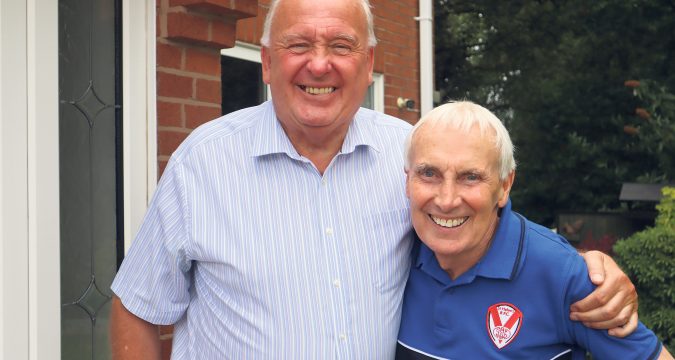 Fifty years after his career was ended by a sickening incident, St Helens half-back Tony Atherton is proud to be a member of the Rugby League Benevolent Fund family.
WHEN Tony Atherton made his first team debut for St Helens in March 1974, it seemed life could not get much better.
Pulling on the famous red vee jersey of his hometown club and
Fifty years after his career was ended by a sickening incident, St Helens half-back Tony Atherton is proud to be a member of the Rugby League Benevolent Fund family.
WHEN Tony Atherton made his first team debut for St Helens in March 1974, it seemed life could not get much better.
Pulling on the famous red vee jersey of his hometown club and Rugby League Benevolent Fund helping ex-St Helens player 50 years after sickening incident ended career
 Fifty years after his career was ended by a sickening incident, St Helens half-back Tony Atherton is proud to be a member of the Rugby League Benevolent Fund family.
WHEN Tony Atherton made his first team debut for St Helens in March 1974, it seemed life could not get much better.
Pulling on the famous red vee jersey of his hometown club and
Fifty years after his career was ended by a sickening incident, St Helens half-back Tony Atherton is proud to be a member of the Rugby League Benevolent Fund family.
WHEN Tony Atherton made his first team debut for St Helens in March 1974, it seemed life could not get much better.
Pulling on the famous red vee jersey of his hometown club and 